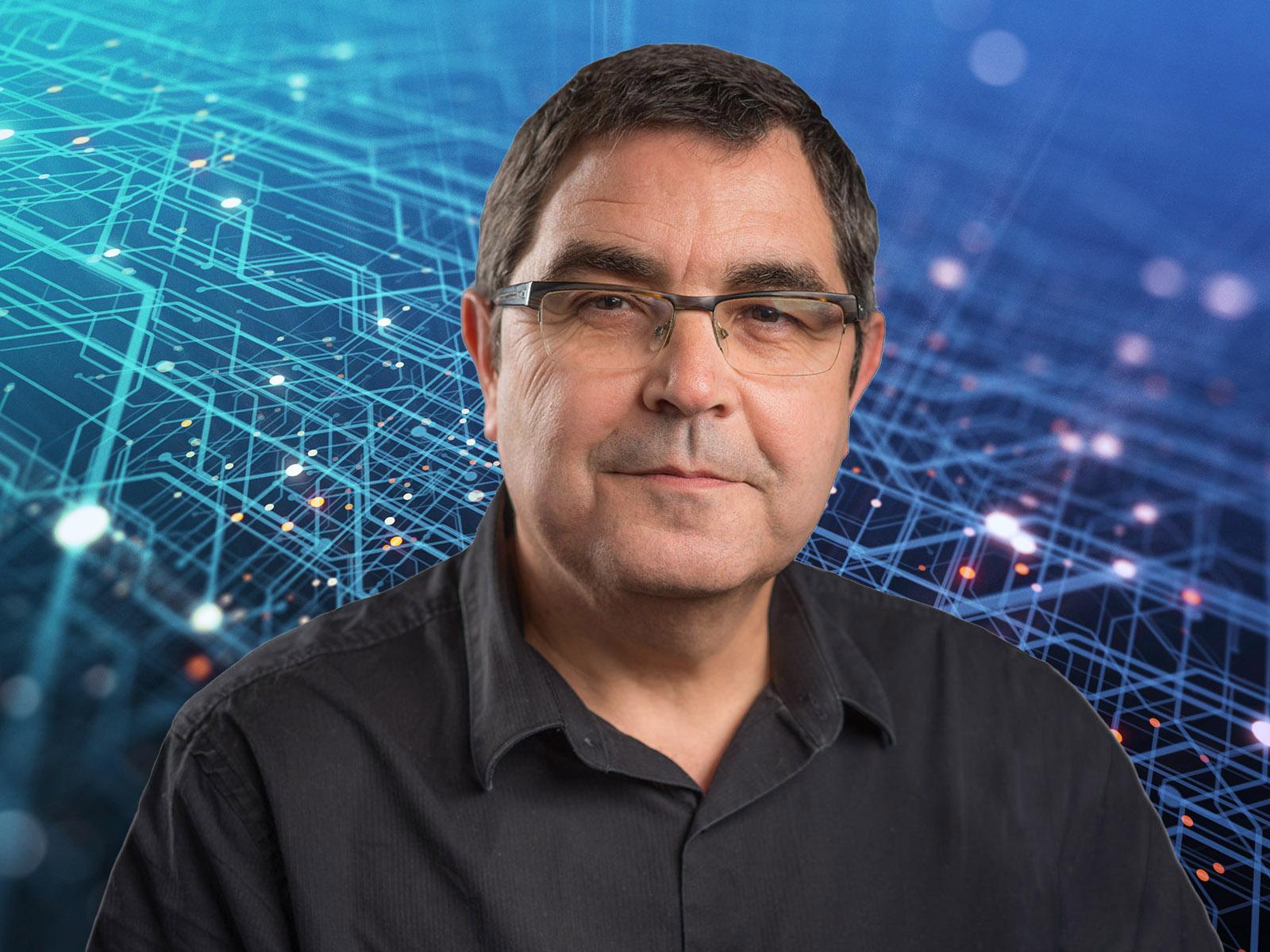Predicting Catalyst Degradation with Machine Learning
Rallo will serve as a thrust leader for a new DOE-funded project

Robert Rallo will spearhead a machine learning thrust in a new project led by SLAC National Accelerator Laboratory.
(Photo by Andrea Starr | Pacific Northwest National Laboratory)
What works in the laboratory doesn’t always work in real-world applications. This holds remarkably true for catalysts—the materials primarily responsible for producing commodity chemicals and fuels. Even those that appear to hold tremendous potential in small-scale studies, which are common in academic settings and many research laboratories, will regularly fail to meet industry standards. The catalyst’s longevity is often the detrimental parameter.
Through a new project funded by the Department of Energy, Basic Energy Sciences and Advanced Scientific Computing Research programs, scientists aim to build an integrated platform to predict catalyst lifespans and degradation. This joint effort, led by Simon Bare at SLAC National Accelerator Laboratory, includes researchers from Pacific Northwest National Laboratory (PNNL), Brookhaven National Laboratory, and university partners.
PNNL Computer Scientist Robert Rallo, who directs the Advanced Computing, Mathematics, and Data Division, will lead a machine learning thrust for the project.
“Developing a machine learning model to predict long-term catalyst activity could help close the gap between industry and research,” said Rallo. “However, limited data volume and heterogeneity pose a significant challenge to this effort.”
The project will develop a multi-fidelity active learning strategy for data generation to facilitate the development and validation of chemistry-aware machine learning models.
“With optimal experimental and computational data generation and chemical physics-based models, we can create a framework to predict and study catalyst deactivation,” said Rallo. “Ultimately, this framework will help scientists create catalysts with better industrial potential for the development of new fuels and commodity chemicals.”
Rallo received his PhD in computer science from the Universitat Rovira i Virgili in Catalonia, Spain. He then served as an associate professor of computer science and artificial intelligence (AI) and the director of the Advanced Technology Innovation Center at the same university. In 2017, he joined Pacific Northwest National Laboratory to lead the Data Sciences group until 2019, when he became the director of the Advanced Computing, Mathematics, and Data Division. His research primarily focuses on the development of AI for scientific discovery, ranging from bio-inspired AI to urban data science.
Published: October 19, 2023